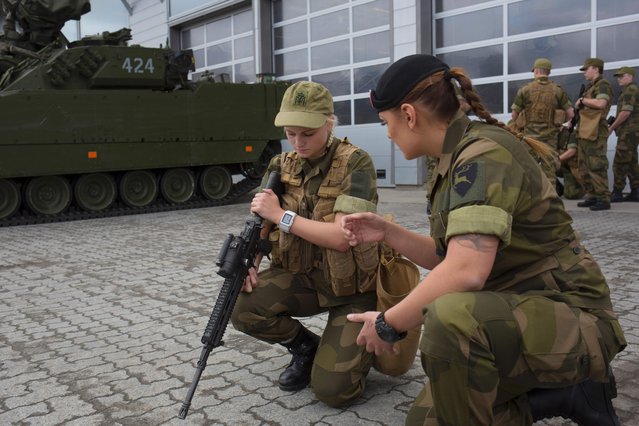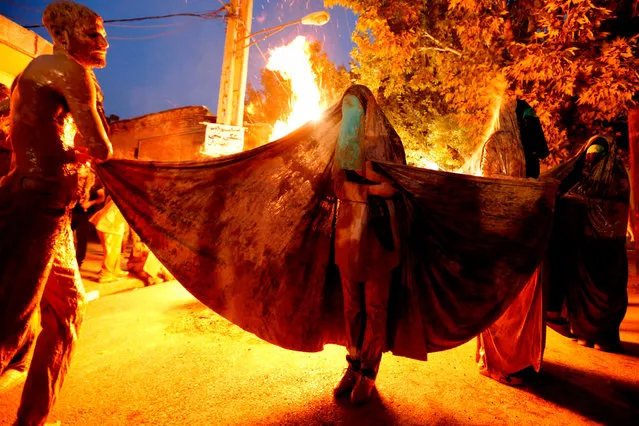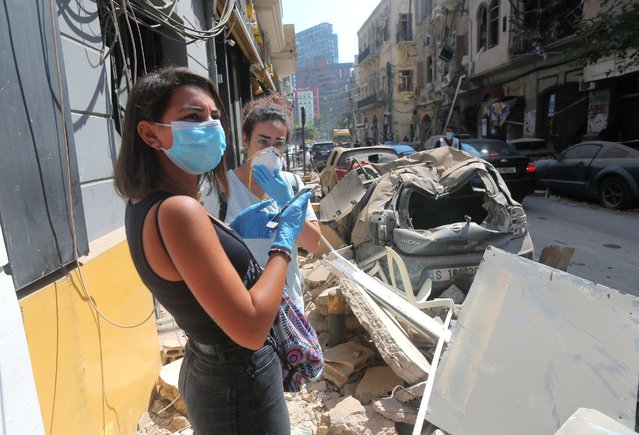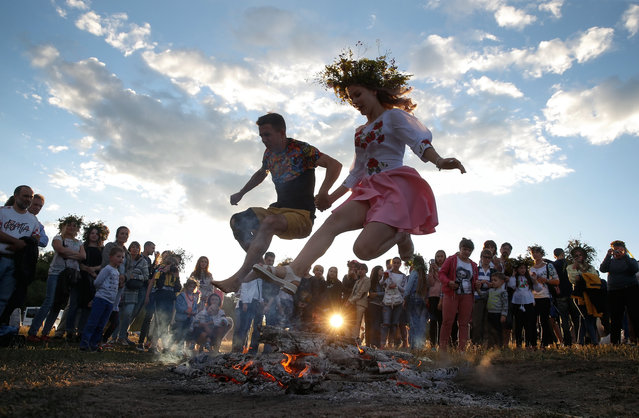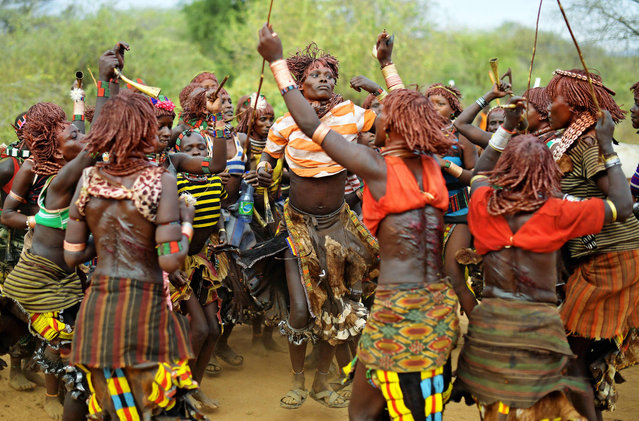
Ethiopian Airlines female pilots prepare the plane before takeoff at Bole international airport in the capital Addis Ababa, November 19, 2015. Ethiopia Airlines on Thursday, dispatched its first ever all-female operated flight. Every aspect of the journey was handled by women, from the ground crew, aircraft maintenance to traffic controllers. Gualu and her co-pilot were charged with flying the crew and passengers to Bangkok, Thailand. (Photo by Tiksa Negeri/Reuters)
21 Nov 2015 08:00:00,post received
0 comments

